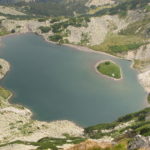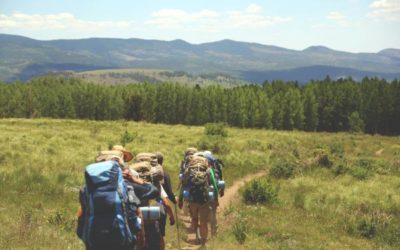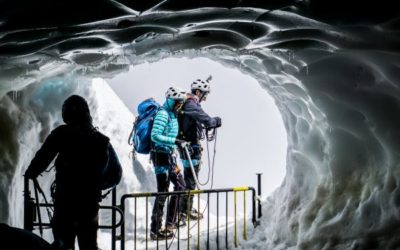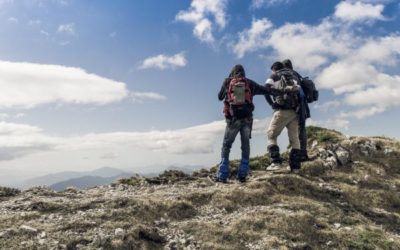by Ashley Denton
 Bitter Waters Make us Appreciate the Sweet Water all the More
Bitter Waters Make us Appreciate the Sweet Water all the More
Outdoor leadership facilitation is one of the soft skills of outdoor ministry that helps us motivate and inspire others to listen to God and learn from others. They story of how God used Israel’s parched thirst and some bitter water to create a thirst for learning is a brilliant example of how facilitation involves creating a thirst for learning.
God Establishes a Critical Thirst
In the Old Testament, God teaches an important lesson through an experience that would have agitated even the most patient of souls. After departing from the shores of the Red Sea, God leads Israel into the desert of Shur. For three days they wander around without finding even a drop of water. Can you imagine how thirsty they must have been? Finally just in the nick of time, they walk up on a pool of water at a place called Marah. With great elation, they cup their hands with water and take a drink. Yuck! The water is so bitter that they spit out that precious mouthful of water. Well, as you might guess the people grumble at Moses, saying, “What are we to drink?” Then Moses cries out to the Lord for mercy (as any compassionate leader would do), and the LORD hears his cry.
Bitter Water Gives them an Appreciation for Sweet Water
Then God shows Moses a piece of wood and tells him to throw it into the water. Once the stick hit the water, the water becomes sweet and refreshing again, and all of Israel is able to quench their thirst. Now that God has their attention, he puts them to the test: “If you listen carefully to the voice of the LORD your God and do what is right in his eyes, if you pay attention to his commands and keep all his decrees, I will not bring on you any of the diseases I brought on the Egyptians, for I am the LORD, who heals you (Exodus 15:26).” Here again we see God using discomfort (in this case thirst) to motivate and inspire his people toward loyalty to him, their provider and guide.
Facilitation Principles that Really Crack Open People’s Shells
So how can we apply this to our own outdoor leadership facilitation skills to help people become thirsty for God? One simple way is if you ever come upon a really nasty body of water when your water bottles are dry, then you could use this story as a great teachable moment. But since that situation might not ever happen to you, I’d encourage you to draw out some principles of facilitation from this passage and find ways you can implement in your own outdoor experiences. I’ll over a couple thoughts, but this theme of “Bitter Water Gives us an Appreciation for Sweet Water” is a huge theme to explore in your own life, and I suspect God will give you some amazing insight as you contemplate that principle on your own….
How to Create a Thirst for Learning?
For example, ask yourself, “How do I create a thirst for learning when I’m leading others in the outdoors?” One way is to artfully ask questions at the right time that shows them they don’t have an adequate answer. This creates a thirst for learning. For example, maybe you are having a casual conversation with someone as you walk along the trial and they share with you that they believe “being a good person” is all that God wants from us. How about asking them, “I really appreciate your heart in saying that, and you desire to be good, but can I ask you a question about that?” “What is ‘good‘ anyway?” “Who determines what ‘good‘ is?” This simple interchange challenges a person’s assumptions and can show them that there is more to their soul then the bland answers they’ve been sold in the marketplace of ideas. The only way there is a thing called “good” is because God has established what is good and what is not good… At the end of the day, “good” is not a relative term–it exists because God exists, he defined what it means. Jesus offended people at times because he loved them so much he was willing to ask a heart-piercing question.
Put Yourself in Others’ Shoes
Ask yourself, “What makes me thirsty to learn?”, and chances are the same is true for others. I get thirsty to learn when I get humbled and realize that I need help. I get thirsty when I am about to take a risk, so I reach out and ask someone who is more competent than me for help so that I feel more confident about taking the risk. In outdoor ministry every time we set up a scenario that involves risk (which is very common in the wilderness setting), you can guarantee that you are creating a “thirst” situation. So as an outdoor leader, just think ahead about the types of “risks” you are going to be encountering as a group on your trip, and do some prayerful-creative thinking about questions you could ask, or other ways you could use those opportunities where people are “thirsty for learning” to teach them what is of utmost importance. And if I had to choose, I’d say the Gospel is the best place to start.




